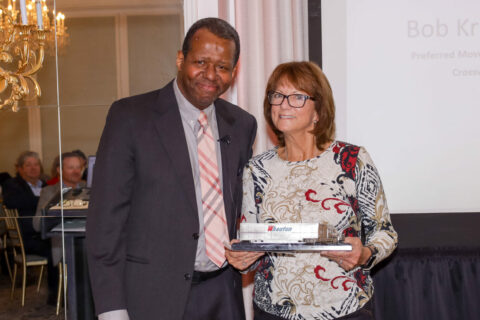Summer moving requires more planning than relocating during other seasons. That’s because summer is the peak moving season, and it tends to create safety and comfort issues when heat is involved. Luckily, Wheaton has been making both local and long-distance moves simple and stress-free for decades, no matter the weather. We have the knowledge and…
The Wheaton Blog
Tips on Moving
Most people know that moving has a busy season—or peak season—and a slower season. So when is the best time to move? The answer is a little complicated. Any time of year can be peak moving season, depending on where you live and where you plan to relocate. If you know what off-peak season is…
NEW AGENT ANNOUNCEMENT Pathway Senior Movers recently joined Wheaton World Wide Moving’s agency network as an interstate agent. Previously an independent agent, the Detroit-area moving company with a second location in the Grand Rapids area joins more than 350 Wheaton agents across the country. “Everyone here at Wheaton has a vested interest in customer satisfaction…
Moving anywhere is stressful—and when you’re moving across state lines, stress only multiplies. The same is often true for moving costs. While many prepare for visible expenses during their out-of-state move, hidden costs can quickly sneak in. This guide aims to help you anticipate little-known moving costs before your cross-country move, so you can budget…
NEW AGENT ANNOUNCEMENT Rene’s Van & Storage recently joined Wheaton World Wide Moving’s agency network as an interstate agent. Previously an independent agent, the California moving and storage company joins more than 350 Wheaton agents across the country. “Everyone here at Wheaton has a vested interest in customer satisfaction since we are an ESOP company,”…
Unlike local relocations, interstate moves are subject to federal regulations. Whether you’re relocating for career advancement, school, family or just a change of scenery, understanding federal moving laws, insurance policies and consumer protections will help you safeguard your belongings and avoid costly pitfalls. As America’s trusted interstate mover, we want you to know your rights…
Wheaton World Wide Moving held its sixth annual Van Line Summit & Awards Gala on Thursday, February 27, during which Wheaton Vice President of Operations Kevin Miller announced Gene Giles as the winner of the van line’s annual Lifetime Achievement award. The distinguished recognition acknowledges the recipient’s enduring dedication, accomplishments and substantial contributions with the…
Exodus Moving & Storage was awarded Wheaton World Wide Moving Agent of the Year Thursday, February 27 at Wheaton’s sixth annual Van Line Summit & Awards Gala. The award is given to the top interstate agent for Wheaton World Wide Moving that exemplifies putting customers first and the characteristics of quality, professionalism, empathy for customers,…
Moving Agent News, Wheaton Company News
Announced Thursday, February 27 at its sixth annual Van Line Summit & Awards Gala, Wheaton awarded top honors to an outstanding driver in the network as 2024 Driver of the Year. To be eligible for these awards, individuals must first earn a Driver of the Month award between January 2024 and December 2024 and consistently…
Moving Tips, Preparing for Your Move
The plain truth is that moves cost money, and the farther you need to go, the more money you’ll need to finance it. Total costs can easily climb well into the thousands when you factor in everything from transportation costs to lost time at work. That’s why it’s essential to plan accordingly. That’s where we…


















